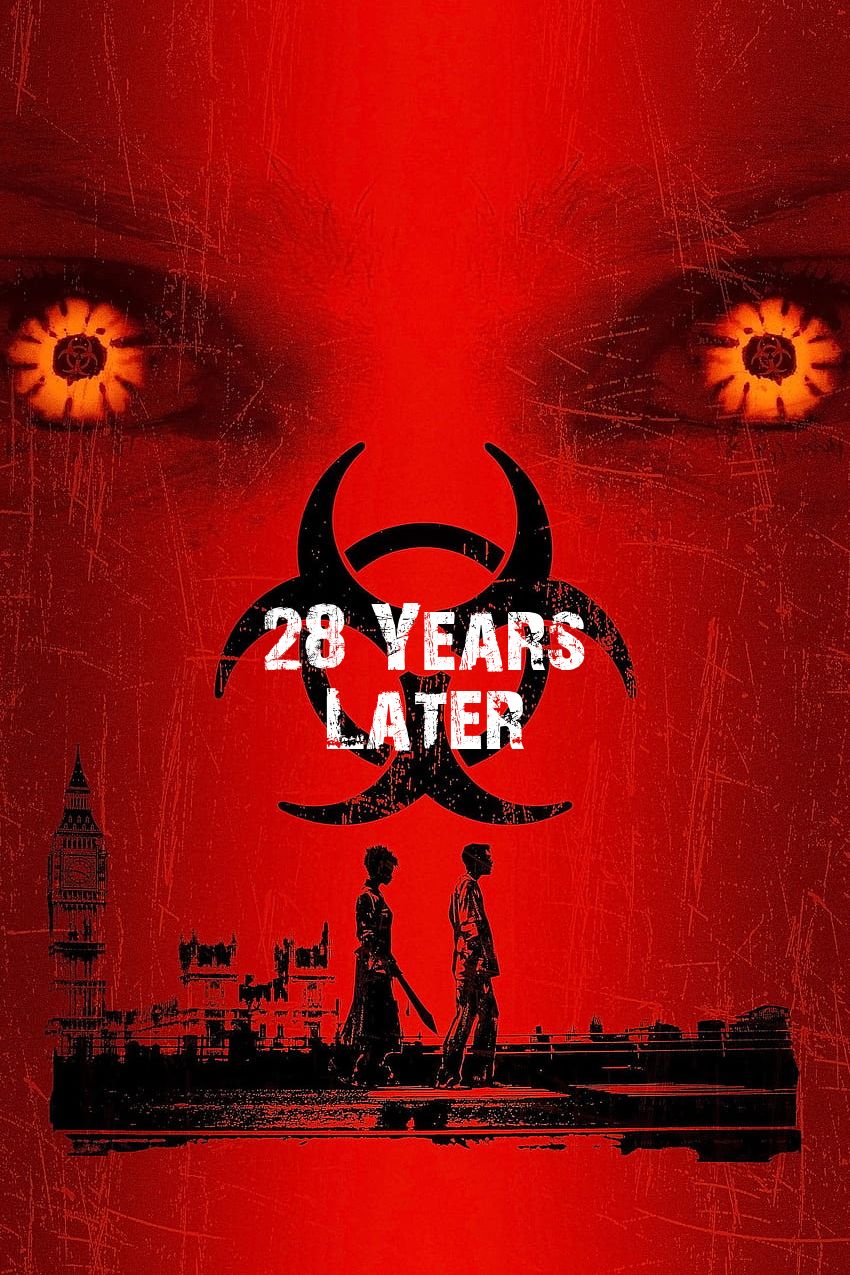Since an intense and dark narration of a mysterious poem perfectly complements the harrowing visuals of 28 Years Later‘s trailer, many viewers may be curious about what the poem is and how it aligns with the movie’s themes. Serving as the third installment in the 28 Days Later franchise and the first to pave the way for another set of films, 28 Years Later is one of the most anticipated movies of 2025. Its first trailer is finally out, giving a glimpse of how much the world has changed three decades after the RAGE virus outbreak.
While it primarily focuses on Aaron Taylor-Johnson’s character, it briefly features Ralph Fiennes and Jodie Comer while seemingly giving away a shocking detail about Cillian Murphy’s return as Jim. What makes the 28 Years Later trailer even more fascinating is that it raises anticipation for the film without giving away too many plot details. It also has an intriguing background score that sounds like a haunting and cryptic poem, seemingly hinting at the thematic elements the film will explore.
A Recording Of Rudyard Kipling’s Boots Plays In 28 Years Later’s Trailer
The Poem Was First Published in 1903
28 Years Later‘s trailer features a recording of Rudyard Kipling’s Boots as its background score. Published in Kipling’s The Five Nations collection, the poem reflects the dreary thoughts of a British Army infantryman who is being forced to march in South Africa during the Second Boer War. A legend surrounding the poem suggests that reading the first four words in each line at the rate of two words per second seemingly highlights the exact time to which the British foot soldiers marched during the 1899 war. The film’s trailer specifically plays American actor Taylor Holmes’ recitation of the poem.
Here’s the complete poem:
We’re foot—slog—slog—slog—sloggin’ over Africa—Foot—foot—foot—foot—sloggin’ over Africa —
(Boots—boots—boots—boots—movin’ up and down again!)
There’s no discharge in the war!
Seven—six—eleven—five—nine-an’-twenty mile to-day—Four—eleven—seventeen—thirty-two the day before —
(Boots—boots—boots—boots—movin’ up and down again!)
There’s no discharge in the war!
Don’t—don’t—don’t—don’t—look at what’s in front of you.
(Boots—boots—boots—boots—movin’ up an’ down again);
Men—men—men—men—men go mad with watchin’ em,
An’ there’s no discharge in the war!
Count—count—count—count—the bullets in the bandoliers.
If—your—eyes—drop—they will get atop o’ you!
(Boots—boots—boots—boots—movin’ up and down again) —
There’s no discharge in the war!
We—can—stick—out—’unger, thirst, an’ weariness,
But—not—not—not—not the chronic sight of ’em—Boot—boots—boots—boots—movin’ up an’ down again,
An’ there’s no discharge in the war!
‘Taint—so—bad—by—day because o’ company,
But night—brings—long—strings—o’ forty thousand million
Boots—boots—boots—boots—movin’ up an’ down again.
There’s no discharge in the war!
I—’ave—marched—six—weeks in ‘Ell an’ certify
It—is—not—fire—devils, dark, or anything,
But boots—boots—boots—boots—movin’ up an’ down again,
An’ there’s no discharge in the war!
Try—try—try—try—to think o’ something different—Oh—my—God—keep—me from goin’ lunatic!
(Boots—boots—boots—boots—movin’ up an’ down again!)
There’s no discharge in the war!
The Poem Seemingly Reflects The Cyclical Nature Of Humanity’s Suffering
It Highlights Humanity’s Relentless Battle Against The Undead
Phrases like “Boots—boots—boots—boots—movin’ up and down again!” and “There’s no discharge in the war!” repeatedly echo in the poem, highlighting the monotony and undying struggle felt by the marching soldiers. The characters in 28 Years Later seem to experience a similar sense of despair as they find themselves living through cycles of endless suffering. 28 Days Later’s optimistic ending reveals that Jim, Hannah, and Selena have survived while the world is on its way to healing after most of the infected humans are slowly dying from starvation.
Here’s Taylor Holmes’ full recitation of Boots:
However, 28 Years Later‘s trailer confirms that even after three decades since the outbreak, humanity has not evaded the looming threat of the RAGE virus. Like the soldiers in the poem, the remaining humans have no choice but to continue their fight for survival despite seeing no clear end in sight. The recitation of the poem has also been used in military programs, including the US Navy’s Survival, Evasion, Resistance, and Escape school, to train tropes to survive if they get captured and tortured by enemy forces (via Yahoo!).
Since the poem has been used in real-life military training to help soldiers build mental fortitude and resilience, it could also represent the mental toll the cycles of tragedy and trauma have taken on the survivors over the years.
The idea behind using the poem or any similar mantra during training is to ensure that soldiers have a fixed set of lines stuck in their heads in a loop so they reveal nothing else to the enemy when captured. Since the poem has been used in real-life military training to help soldiers build mental fortitude and resilience, it could also represent the mental toll the cycles of tragedy and trauma have taken on the survivors over the years. It could be a symbol of how generations after generations don the heavy boots of survival, constantly marching forward despite the emotional burden it comes with.
Boots Could Be Hinting At 28 Years Later’s Militaristic Themes
28 Days Later Drew A Picture Of How Military Forces Took Advantage Of The Virus Outbreak
28 Days Later gives a glimpse of how military forces misuse their power and try to take advantage of unsuspecting civilians like Jim, Hannah, and Selena. With Boots as the background score, 28 Years Later could further nail down these militaristic themes by highlighting how democracy has completely collapsed since the inception of the outbreak and how dictatorships have risen to maintain order. While the rise of military forces has kept the world from descending into complete chaos, military leaders like Major Henry West have imposed authoritarian rule over the people.
Related
28 Years Later: Release Date, Cast, Story, Trailer & Everything We Know
The duo of Alex Garland and Danny Boyle are returning for 28 Years Later, a long-awaited sequel to the zombie film that changed the genre.
The trailer also features many scenes in which military forces seemingly find themselves facing evolved versions of the infected. This could mean that, despite being perceived as a stabilizing force in the past, the military, too, is starting to lose control as the infected pose an even greater threat. In this case, Rudyard Kipling’s Boots in 28 Years Later could allude to the military’s desperation to establish control even though they are failing in their war against the infected.

